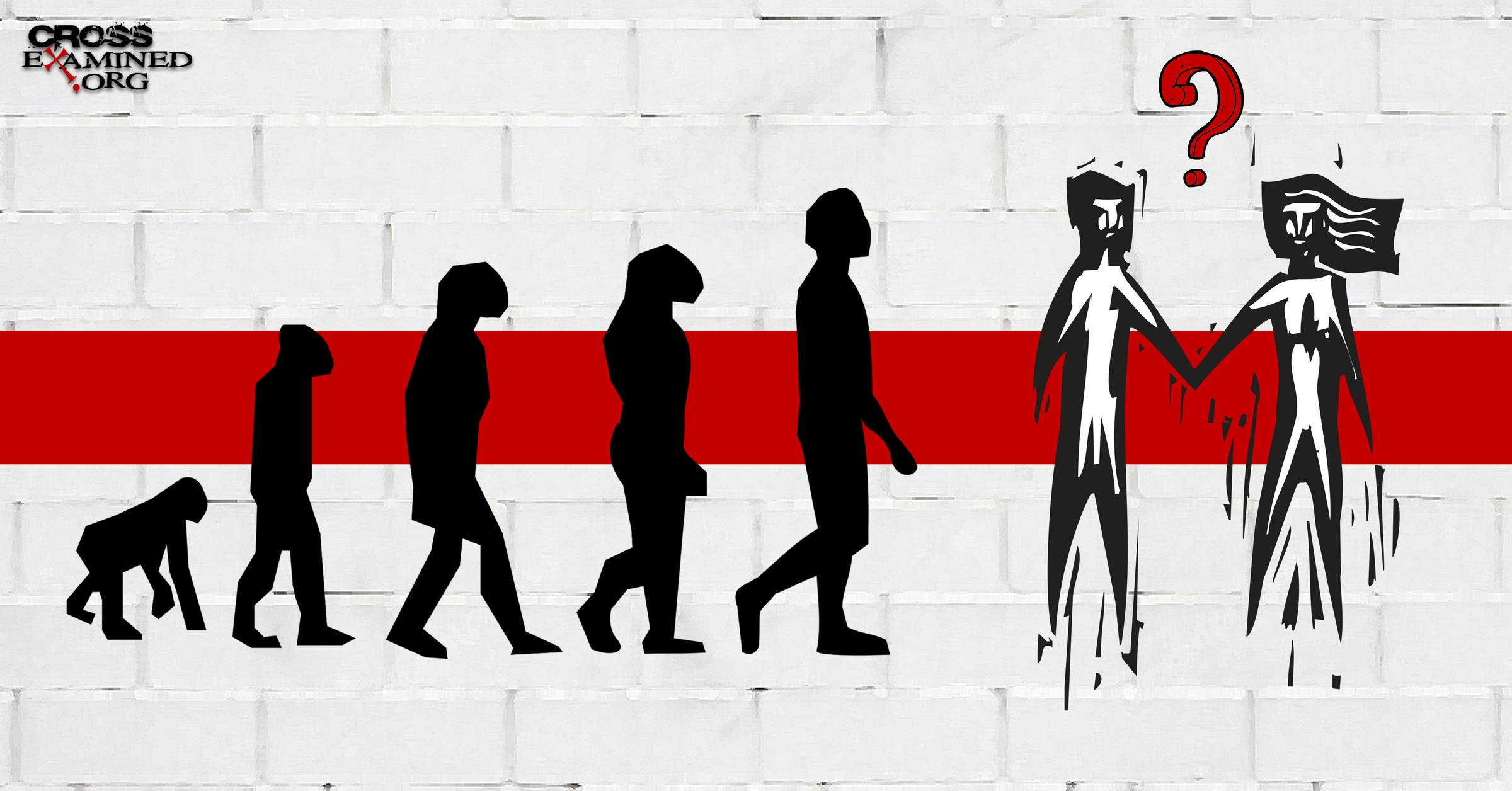As a pastor who spends a lot of time on the college campus, I hear the following challenges quite often from young skeptics: “There is no good evidence to think that Jesus ever existed,” or “Christianity has pagan roots!” One might put these common challenges as two questions: (1) Did Jesus of Nazareth really exist? (2) Are the gospel records of this man merely fictional mythology?
In this essay, I want to explore several lines of evidence that will show that the answer to the first question is a clear “Yes!” and to the second “No!”
i. Did Jesus of Nazareth really exist?
Though there are many “street atheists,” or “internet infidels” who espouse their unqualified views and who in the process influence many impressionable young minds, it should be pointed out that there are very few (if any) scholars and historians who would argue that Jesus never existed. There is just too much evidence to the contrary.
Space does not permit a thorough list of primary sources for Jesus’ historical existence outside of the New Testament, but the following will demonstrate that Jesus indeed lived. Further, the evidence cited will show that extra-biblical sources do not contradict the historical accounts in the Gospels. Indeed, they complement that history.[1]
The ancient sources[2] will be arranged in two ways: (1) Sources that specifically use the name “Jesus” or “Christ;” and (2) Sources that specifically reference events associated with Jesus.
- Sources that specifically use the name “Jesus” or “Christ.”
a) Letter of Mara Bar-Serapion
This letter—written sometime later than A.D. 73—was sent by a Syrian named Mara Bar-Serapion to his son Serapion to encourage him in the pursuit of wisdom and pointed out that those who persecuted wise men were overtaken by misfortune.
What advantage did the Athenians gain from putting Socrates to death? Famine and plague came upon them as a judgment for their crime. What advantage did the men of Samos gain from burning Pythagoras? In a moment their land was covered with sand. What advantage did the Jews gain from executing their wise King? It was just after that that their kingdom was abolished…. But Socrates did not die for good; he lived on in the teaching of Plato. Pythagoras did not die for good; he lived on in the statue of Hera. Nor did the wise King die for good; He lived on in the teaching which He had given.[3]
This ancient document corroborates Jesus’ death, death by the Jews, and that His teaching obviously had continued on (i.e., He had followers who were spreading His teachings).
b) Flavius Josephus
Josephus, a Jewish historian, wrote toward the end of the first century AD. There are three valuable references for the historicity of Jesus. One (Antiquities xviii. 5) describes John the Baptist just as the New Testament Gospels do. The second (Antiquities xx. 9) describes the death of James:
(Ananus [Ananias]) convened the judges of the Sanhedrin and brought before them a man named James, the brother of Jesus, who was called the Christ, and certain others. He accused them of having transgressed the law and delivered them up to be stoned.
The reference to Jesus being the brother of James fits the New Testament data, but that Jesus is further identified as the Christ is remarkable in light of the following quotation from Josephus.[4]
Now there was about this time Jesus, a wise man, if it be lawful to call him a man, for he was a doer of wonderful works, a teacher of such men as receive the truth with pleasure. He drew over to him both many of the Jews, and many of the Gentiles. He was the Christ, and when Pilate, at the suggestion of the principal men among us, had condemned him to the cross, those that loved him at the first did not forsake him; for he appeared to them alive again the third day; as the divine prophets had foretold these and ten thousand other wonderful things concerning him. And the tribe of Christians so named from him are not extinct at this day.” (Antiquities xviii. 33)[5]
The value of these words of Josephus—though some words are controversial—can not be overstated. The Jesus of the New Testament documents is called a wise “man,” did wonderful works, was a great teacher, was the Messiah, was condemned and crucified by Pilate, reportedly arose from dead on the third day (in fulfillment of the Old Testament), and a movement of “Christians” continued at the time of Josephus’ writing.
c) Plinius Secundus, or Pliny the Younger: Governor of Bithynia in Asia Minor (A.D. 112)
The following is a letter he wrote to the emperor Trajan seeking counsel as to how to treat Christians:
In the case of those who were denounced to me as Christians, I have observed the following procedure: I interrogated these as to whether they were Christians; those who confessed I interrogated a second and a third time, threatening them with punishment; those who persisted I ordered executed…. Those who denied that they were or had been Christians, when they invoked the gods in words dictated by me, offered prayer with incense and wine to your image… and moreover cursed Christ—none of which those who are really Christians, it is said, can be forced to do—these I thought should be discharged…. They asserted, however, that the sum and substance of their fault or error had been that they were accustomed to meet on a fixed day before dawn[6], and sing responsively a hymn to Christ as to a god, and to bind themselves by oath, not to some crime, but not to commit fraud, theft, or adultery, not falsify their trust, nor to refuse to return a trust when called upon to do so. When this was over, it was their custom to depart and to assemble again to partake of food—but ordinary and innocent food. Even this, they affirmed, they had ceased to do after my edict by which, in accordance with your instructions, I had forbidden political associations. Accordingly, I judged it all the more necessary to find out what the truth was by torturing two female slaves who were called deaconesses. But I discovered nothing else but depraved, excessive superstition…. For the contagion of this superstition has spread not only to the cities but also to the villages and farms. (Epistles X. 96)
The governor identifies Jesus as “Christ” and says his followers consider him “a god.” Their fault in his judgment is their “superstition” (Jesus’ resurrection?).
d) Cornelius Tacitus (A.D. 55-120)
But not all the relief that could come from man, not all the bounties that the prince could bestow, nor all the atonements which could be presented to the gods, availed to relieve Nero from the infamy of being believed to have ordered the conflagration, the fire of Rome. Hence to suppress the rumor, he falsely charged with the guilt, and punished with the most exquisite tortures, the persons commonly called Christians, who were hated for their enormities. Christus, the founder of the name, was put to death by Pontius Pilate,[7] procurator of Judea in the reign of Tiberius; but the pernicious superstition,[8] repressed for a time broke out again, not only through Judea, where the mischief originated, but through the city of Rome also.” (Annals XV. 44)
These are the chief references to Jesus outside of the 27 individual accounts comprised in the New Testament. A number of other sources are cited (here) on the FreeThinking Ministries website.
- Sources that specifically reference events associated with Jesus.
a) Thallus, the Samaritan-born historian (A.D. 52)
Thallus wrote a history of the Eastern Mediterranean from the time of the Trojan War to his own time. Though his writings have disappeared, we only know of them from fragments cited by other writers. The citation below is from Julius Africanus, who is alluding to Thallus’ reference to the darkness that covered the earth from noon to 3:00 p.m. during Jesus’ crucifixion:
Thallus, in the third book of his histories, explains away this darkness as an eclipse of the sun-unreasonably, as it seems to me….[9]
It was “unreasonable,” of course because a solar eclipse could not take place at the time of the full moon, and it was at the season of the Paschal full moon that Christ died.
b) Phlegon of Tralles, Chronicles (2nd century).
Though he is known to have written several works, his history—Chronicles—has disappeared. He, however, is quoted by several ancient writers.
During the time of Tiberius Caesar, an eclipse of the sun from the sixth hour to the ninth occurred during the full moon.[10]
Phlegon is also noted by Origen:
“But,” continues Celsus… “although we are able to show the striking and miraculous character of the events which befell Him, yet from what other source can we furnish an answer than from the Gospel narratives, which state that “there was an earthquake, and that the rocks were split asunder, and the tombs opened, and the veil of the temple rent in twain from top to bottom, and that darkness prevailed in the day-time, the sun failing to give light?”
Answer: “With regard to the eclipse in the time of Tiberius Caesar, in whose reign Jesus appears to have been crucified, and the great earthquakes which then took place, Phlegon too, I think, has written in the thirteenth or fourteenth book of his Chronicles” (Origen, Against Celsus, 2.33)…. He (Celsus) imagines also that both the earthquake and the darkness were an invention; but regarding these, we have in the preceding pages, made our defense, according to our ability, adducing the testimony of Phlegon, who relates that these events took place at the time when our Saviour suffered. (Origen, Against Celsus 2.59)[11]
From these references to Phelgon’s history, we see that the gospel account of the darkness (three hours long), which fell upon the land during Christ’s crucifixion and very possibly the earthquake were well-known. Origen’s account is especially helpful because he is responding to an antagonist who questions the New Testament record.
There are numerous other sources that corroborate events associated with Jesus’ life and death, some of which can be found by clicking here.
No reference in the above citations has been made to the New Testament documents, though we must not dismiss them as merely “religious books.” They are primary documents[12] and should be viewed as reliable history unless they fail to meet the muster of other ancient documents. Further, it is apparent in other places in the New Testament that the history of Jesus, as recorded in the Gospels, was commonly affirmed. The Apostle Paul in his first letter to the church at Corinth (15:3-5) gives a creed current in his day (prior to his death in AD 64) which states that Jesus was crucified to pay for our sins; that He died, was buried, and rose from the dead on the third day; and that He was seen by eyewitnesses.
Click here for more information regarding this creed.
ii. Are the gospel records of this man merely fictional mythology?
Though a strong case can be and has been made for the historicity of Jesus of Nazareth, this has not stopped many young skeptics from espousing popular bumper sticker slogans like “Christianity has pagan roots.” I personally have been challenged with the accusation that the story of Jesus being the Son of God and rising from the dead is plagiarism from Egyptian mythological pagan “gods” such as Adonis, Mithras, Osiris, Attis, and Horus, to name a few.
But careful analysis shows that such charges fail for several reasons. First of all, there are far more differences between Christianity and these mysterious stories of pagan religions than any similarities offered. For instance, it is purported that the pagan god Osiris was a dying and rising god, and that Christianity is a “copy cat” religion based on Osiris’ resurrection from the dead.[13] At first glance this appears to be troublesome, but when examining these stories with more scrutiny, the differences become glaring.
Osiris, so the account states, was murdered by his brother, and then his body was torn into fourteen pieces and scattered all across Egypt. Then his wife, Isis, found thirteen of the fourteen pieces of his body, revived him (quite different than a resurrection), and then went on to make him “god of the underworld.” This is nothing like the historical story that Jesus voluntarily went to the cross, which defeated and destroyed sin so that through His atonement we as humans could be reconciled with the Creator of the universe, and then three days later, Jesus rose from the dead in whole, and in a powerful, glorified body that we as Christians can also look forward to one day. The story the Bible teaches as historical fact seems quite different when compared to these mythical pagan stories.
Sean McDowell in an article entitled “Is Christianity a Copycat Religion?” says that “Parallels prove nothing.” He gives an interesting parallel: a British ocean liner that could carry 3,000 passengers, had a top cruising speed of twenty-four knots, had an inadequate number of lifeboats hit an iceberg on its maiden voyage, tore a hole in the side of the ship, and sank along with the 2,000 passengers on board. What ship was that? Most of us immediately conclude that this must be the account of the Titanic, but we are mistaken. Sean was describing the Titan, a fictional ship described in Morgan Robertson’s book, Wreck of the Titan, a fictional story written fourteen years before the sinking of the Titanic actually occurred. While the resemblance between the two accounts is eye-opening, the fictional “Titan” is irrelevant to the historical evidence that the Titanic was, in fact, a real ocean liner that sank in the Atlantic after colliding with an iceberg.
Similarly, even if pagan myths did exist that were comparable to the Gospel records and before the time of Christ, it would not undermine the historical evidence for Jesus’ miraculous life, death, and resurrection. “Parallels alone are inconclusive.”[14]
Up to this point, I have intentionally avoided using the Gospel records as historical evidence of the historicity of Jesus because many skeptics disregard anything the Bible says just because it’s in the Bible! However, just because the Bible reports something as a historical event, doesn’t mean we should immediately disregard it. In fact, the Bible is filled with outstanding historical documents. The “search for the historic Jesus” has been going on for well over a century. During this search, there has not been any “new evidence” supporting the idea that the miracle-working Son of God evolved from pagan myths over time. Conversely, modern discoveries have given more reliability to the content of the Gospel accounts in the New Testament. Greg Koukl’s summary states it well:
We know the Apostle Paul died during the Neronian persecution of A.D. 64. Paul was still alive at the close of Acts, so that writing came some time before A.D. 64. Acts was a continuation of Luke’s Gospel, which must have been written earlier still. The book of Mark predates Luke, even by the Jesus Seminar’s reckoning. This pushes Mark’s Gospel into the 50s, just over twenty years after the crucifixion. It is undisputed that Paul wrote Romans in the mid-50s, yet he proclaims Jesus as the resurrected Son of God in the opening lines of that epistle. Galatians, another uncontested Pauline epistle of the mid-50s, records Paul’s interaction with the principle disciples (Peter and James) at least 14 years earlier (Gal 1:18, cf. 2:1). The Jesus Seminar claims that the humble sage of Nazareth was transformed into a wonder-working Son of God in the late first and early second century. The epistles, though, record a high Christology within 10 to 20 years of the crucifixion. That simply is not enough time for myth and legend to take hold, especially when so many were still alive to contradict the alleged errors of the events they personally witnessed. There is no good reason to assume the Gospels were fabricated or seriously distorted in the retelling. Time and again the New Testament writers claim to be eyewitnesses to the facts. And their accounts were written early on while they’re memories were clear and other witnesses could vouch for their accounts. The Gospels are early accounts of Jesus’ life and deeds.[15]
In sum, the contentions that Jesus never existed or that He was a plagiarized version of mythical pagan deities does not pass the muster of historical research, and, therefore, skepticism regarding the reality of the historical person of Jesus is completely unwarranted. Jesus of Nazareth was a real person of history!
Interestingly, Bart Ehrman, one of the harshest and most critical voices regarding Jesus’ resurrection agrees and concludes,
“Whether we like it or not, Jesus certainly existed.”[16]
Notes
[1] A fuller list can be found at our website and the folder “Historical References to Christ from Non-biblical Sources.”
[2] Much of this material and bibliography can be found—often with further discussion—in Gary R. Habermas, The Historical Jesus; Josh McDowell, Evidence That Demands A Verdict; also the updated (by his son, Sean McDowell) Evidence That Demands A Verdict: Life-Changing Truth for a Skeptical World. See also Josh McDowell and Bill Wilson; He Walked Among Us. Some dating is based on J. N. D. Anderson Christianity: The Witness of History (pages 13-37, especially).
[3] The manuscript in the British Museum, preserving the text of this letter is quoted from F. F. Bruce in The New Testament Documents: Are They Reliable?
[4] Relatively little question is raised about the authenticity of this quotation.
[5] There has been much debate over this quotation, primarily because it is such a strong defense of the New Testament accounts of Jesus. All extant manuscripts of Josephus, however, contain it, which is a strong defense of its authenticity. For all the arguments, see McDowell and Wilson, He Walked among Us, 41-45. Though some have said that this quotation has been “edited” by Christians, the Arabic version still has the explicit reference to the resurrection. The Arabic version: “At this time there was a wise man who was called Jesus. And his conduct was good, and he was known to be virtuous. And many people from among the Jews and the other nations became his disciples. Pilate condemned him to be crucified and to die. And those who had become his disciples did not abandon his discipleship. They reported that he had appeared to them after his crucifixion and that he was alive; accordingly, he was perhaps the Messiah concerning whom the prophets have recounted wonders” (Arabic summary, presumably of Antiquities 18.63. From Agapios’ Kitab al-‘Unwan (“Book of the Title,” 10th c.). See also James H. Charlesworth, Jesus within Judaism, (http://ccat.sas.upenn.edu/~humm/Topics/JewishJesus/josephus.html). See also Habermas’ discussion of this and his reference to the Arabic translation of Josephus’ work.
[6] The time was the early morning on the first day of the week, thus celebrating the resurrection of Jesus. By this time, worship had moved from the Sabbath to Sunday.
[7] This is one of four references to Pilate outside the New Testament.
[8] Anderson: [This reference] “is bearing indirect and unconscious testimony to the conviction of the early church that the Christ who had been crucified had risen from the grave.”
[9] Julius Africanus, Chronography, 18.1.
[10] Julius Africanus, Chronography, 18.1.
[11] Phlegon is also noted by a six-century writer named Philopon: And about this darkness…Phlegon recalls it in his Olympiads….
[12] Especially F. F. Bruce, Are the New Testament Documents Reliable? In a Biola Christian Apologetics Program audio lecture (Craig Hazen, “Evidence for the Resurrection”), Hazen states “When these gospel accounts are scrutinized under the accepted principles of textual and historical analysis, they are found to be trustworthy historical documents and primary source accounts concerning the life, death, and resurrection of the man Jesus of Nazareth.”
[13] Lee Strobel, The Case for the Real Jesus, 163.
[14] Sean McDowell, “Is Christianity a Copycat Religion?” quoted in The Apologetics Study Bible for Students, 1366.
[15] Greg Koukl, http://www.str.org/site/News2?page=NewsArticle&id=6760, accessed February 11, 2017.
[16] Bart Ehrman, “Did Jesus Exist?”, Huffington Post (March 29, 2012); http://www.huffingtonpost.com/bart-d-ehrman/did-jesus-exist_b_1349544.html, accessed February 11, 2017.
Recommended resources related to the topic:
Early Evidence for the Resurrection by Dr. Gary Habermas (DVD), (Mp3) and (Mp4)
World Religions: What Makes Jesus Unique? mp3 by Ron Carlson: http://bit.ly/2zrU76Y
Did Jesus Rise from the Dead? By Dr. Gary Habermas (book)
Jesus, You and the Essentials of Christianity – Episode 14 Video DOWNLOAD by Frank Turek (DVD)
The Footsteps of the Apostle Paul (mp4 Download), (DVD) by Dr. Frank Turek
Can All Religions Be True? mp3 by Frank Turek
Tim Stratton (The FreeThinking Theist) pursued his undergraduate studies at the University of Nebraska-Kearney (B.A. 1997) and, after working in full-time ministry for several years, went on to attain his graduate degree from Biola University (M.A. 2014). Tim is currently enrolled at North-West University, pursuing his Ph.D. in systematic theology with a focus on metaphysics, history, and biblical data.
Original Blog Source: http://bit.ly/39JIcBX










